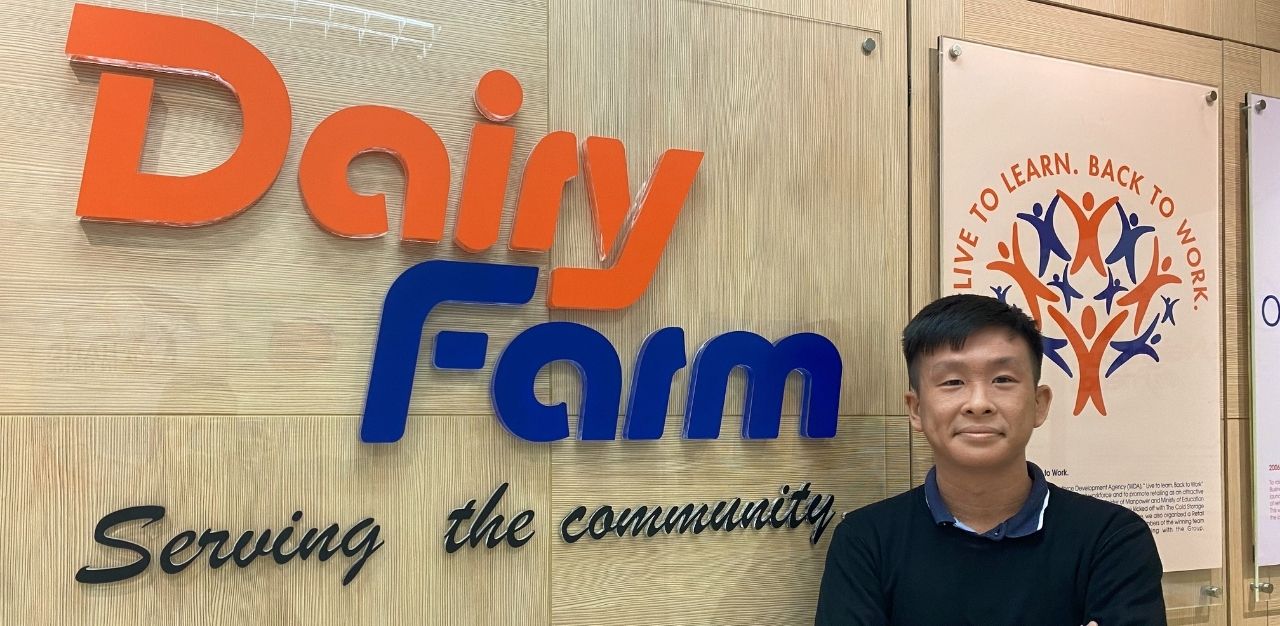Amid the pandemic, Workforce Singapore and the Ministry of Manpower introduced the SG United Traineeships Programme to assist recent graduates acquire and enhance industry-related skills, hence improving their employability. But reactions have been mixed, with some trainees TheHomeGround Asia spoke to saying the scheme fulfilled their expectations, while others dropped out because it did not. Host organisations were, however, mostly positive, agreeing that the programme met their manpower needs but have suggested ways it could be improved.
As the resident unemployment rate peaked at 4.8 per cent last October amid the Covid-19 pandemic, recent graduates faced with the prospect of a depressed jobs market could turn to the SG United Traineeships programme.
Launched last year to aid job seekers attain relevant industry experience and build networks, some 7,600 applicants have signed up to be trainees, as of end February. Also according to a job situation report released on 12 April by the Ministry of Manpower, some 200 trainees (including those under the SG United Mid-Career Pathway scheme) found full-time employment opportunities while completing their traineeships.
Chirag Agarwal, co-founder of social enterprise Talk Your Heart Out, shares that his company was keen on joining the programme as it was a good way to “take the plunge” and expand their team.
He describes the process of applying to be a host organisation as “fairly straightforward”. His company kickstarted the process by filling up an application form from the Singapore Business Federation (SBF), which included a development plan for the trainee.
“[This would] describe the activities they will participate in, the skills they would acquire, and how long it would take for them to develop different competencies,” explains Mr Agarwal.
But, Kelly Tan (not her real name), whose company also joined as a host organisation under the SG United Traineeships Programme, says that the application process had its difficulties.
“The process of application, to recruiting or convincing a trainee to join the company, it’s quite an uphill task,” she admits, saying that she found herself slightly overwhelmed by the process. There were constant updates and changes to the requirements for the programme to navigate.
While “such a stringent process” ensures that companies do not take advantage of the programme, Ms Tan suggests that more support can be provided. For instance, firms would benefit from assistance especially if they are unable “to catch up with all these application requirements” to “diagnose their needs”, she says.
Fitting the needs of both job seekers and employers
Nonetheless, Ms Tan found the programme useful in fulfilling her company’s manpower needs. She says that her team needed staff with up-to-date skills to meet their e-commerce requirements.
“It was really a perfect marriage of talent being ready and needing to be able to find work, [and] companies like us that were struggling because the workload digitally just multiplied,” she elaborates, and adds that the traineeship is a mutually beneficial arrangement for trainees and companies.
“We really saw this win-win situation where we also didn’t want to commit to a full-time [staff],” she shares. “It allowed [trainees] to [get] hands-on and real world practice [for] the skills learned in school, while we were hungry for people with updated skills.”
Through her experience with hiring, she realised that individuals with more experience may not have enough knowledge of the latest skills and software: “There’s this gap; we find that if we hire somebody who’s already working, they [may] not [be] updated in the type of skills that are needed in ecommerce.”
Ms Tan shares that the traineeship programme came at an opportune moment, when her company was uncertain about being able to commit to paying a full-time employee’s salary.
“It was a time where the company [could not] afford to pay a full salary because of uncertainty… We aren’t sure whether there’ll be another wave of Covid, [which] makes us very hesitant to commit to a full-time, full-salaried [role],” she says.
Ms Tan thinks that organisations who choose to participate in the programme must be sincere in their efforts to develop trainees. She acknowledges that there is a risk some companies might not adhere to the submitted development plan, possibly resulting in the trainee getting “short-changed”. Other firms may rely on the programme for “free or cheap labour”, which she feels “goes against the purpose of the traineeship.”
That is not to say she does not empathise with firms that require financial support from the grant to hire staff. But that host organisations who do not provide adequate training and development would not “reap the maximum benefits” from the traineeship scheme. This, she explains, is because those undergoing training are unlikely to contribute in a valuable way to the company, since they did not get the opportunities that they were promised.
Difference between a trainee and an intern
The job scope and level of expectation for interns and trainees can vary, according to Ms Tan.
“For an intern, hand-holding is maximum, the strategic planning involvement is very minimal, and the duration is very short, so the level of training invested will also be lower,” she explains.
Interns, she adds, tend to be trained in more “practical” skills, and may sometimes be assigned tasks that are more repetitive in nature.
In contrast, she says that her company tends to invest more to train trainees. A current trainee, for instance, has received guidance from a media agency they were working with to learn how to analyse Search Engine Optimisation reports.
Having autonomy is another benefit of being a trainee, whereas interns may not be entitled to the same freedoms.
“The trainee functions almost like the executive and they are given the opportunity to make mistakes, to also be able to correct the mistakes, and also figure out what can be done better,” she says.

The trainee’s perspective
Charlene (not her real name)’s time with the SG United Traineeships programme was bittersweet. Having graduated last year, she feels grateful for the opportunity to gain work experience, but is simultaneously uncertain about whether the skills she has picked up are sufficient to equip her to take on a full-time position.
She had signed up to gain exposure to working life and the creative industry.
“I thought that… if I continue learning [and] get good at my job, then I might want to stay. I think that’s the attitude that a lot of my friends go into their traineeships with,” she says.
But, she soon found that she was receiving less support in her role than expected. Neither was the development plan in her contract followed, which she pointed out to her supervisor.
“By the third month, I was telling him, ‘Oh, [what I’m doing is] not the same as [what I’m supposed to be learning in the] traineeship.’. Then they say, ‘Oh, we don’t follow the [plan] in the contract,’” she says, adding that she found herself working on proposals, while her initial contract stated that she would have the opportunity to learn how to write scripts and documentaries.
She thinks that the host organisation could have crafted her development plan, while considering the actual scope of opportunities available for her to gain writing experience.
“I don’t understand why they promised when they knew that they couldn’t follow up on it,” she says. After nine months, Charlene decided to leave her role three months short of completing the full length of the traineeship, as she had found a full-time role in another organisation.
Similarly, Andy, a marketing graduate who prefers to remain anonymous, says that his traineeship experience fell short of what he expected.
Having graduated last year, he took up a traineeship role in marketing to explore how he fit in the industry, and was drawn to the programme partly because of the short-term nature of the role.
“I want to do something that I could try out for a while and not commit the next three years to,” he shares.
He claims that the training plan given to him at the beginning of the traineeship came across as “more of an afterthought”, and that the role appeared to prioritise fulfilling his host organisation’s manpower needs over his progress as a trainee.
“So what I would be doing was secondary to whether or not we have someone in first,” he said. “The [progress report] was written as it was completed, so it wasn’t really a plan [as it was] like, ‘Here’s a log of all the things you did this month.’” He eventually chose to leave the traineeship after four months.
In a written reply to TheHomeGround Asia, a Workforce Singapore (WSG) spokesperson clarifies that a training agreement, inclusive of a development plan, has to be signed by both the trainee and host organisation before a traineeship starts. Following that, the host organisation has to update SBF on the trainees’ progress throughout the programme. In turn, this would be verified against the development plan that SBF had approved. Trainees would finally have to sign off on the progress report, before the training allowance is disbursed to the company.
WSG further assures that even before an application is approved, SBF scrutinises it to ensure that host companies structure their traineeships appropriately with clear development plans. Companies can get assistance from SBF to review and improve their proposals, especially for applications that are incomplete or lacking in detail. This, WSG says, is meant to ensure that the traineeship experience is a positive and meaningful one.
But not all trainees whom TheHomeGround Asia spoke to had less than positive experiences. Some, like Jonathan Oh, have encountered immense growth opportunities.
Mr Oh entered the Dairy Farm Group last July, and gained international exposure as a human resource business partner trainee through projects in Cambodia. After a seven-month traineeship, his contract was converted to a full-time one.
Describing his traineeship as “fun”, “exciting” and “refreshing”, Mr Oh feels lucky to be in his position. As a fresh graduate, his experience from a “regional and HQ/group standpoint” was also an eye-opener.
He also learnt to adapt and to communicate with individuals from different backgrounds, cultures, and work ethics.
“You have to take notes, adjust to their work style, [and] make sure you understand each other,” he notes. And added that this helped him to have a deeper understanding of processes, which he applies to his full-time position as Rewards Executive, handling compensation and benefits.

Receiving guidance and structure
Andy feels that he did not receive much guidance or structure from his traineeship, which he attributes to being the only member of his team who had marketing experience.
“What ended up happening for some time was that they would either pull knowledge from their own areas of expertise, to try and do marketing,” he says. “Or else it would be me teaching them how to look at certain problems… I was doing the work but I was also learning and teaching at the same time.”
Charlene also felt that she learned more from her fellow trainees than from more experienced colleagues in her company.
“I find that in terms of guidance from the really experienced people in the company, I don’t get much of that,” she says. “I learned a lot from my peers… they’re very willing to teach, which is something I’m very grateful for.”

But, Mr Oh shares that despite being the only trainee in his department, he felt that he received a lot of support from his supervisor, especially when it came to handling regional projects.
“She had experience dealing with different countries… she guided [me on] what is the work style of different countries… the procedure, what has been disseminated before… she will guide you on the tasks to follow up [on],” he explains.
Furthermore, Dairy Farm Group has an approachable culture, he adds, which helped him to feel comfortable and unafraid to clarify any doubts.
“It’s a ‘free to ask’ kind of thing, don’t need to be scared,” he shares. “There’s some instances where you don’t want to bother people, but the truth is, sometimes you really don’t know what is going on.”
The impact of traineeships on the job market
Although Charlene thinks that the SG United Traineeships programme has met the needs of job seekers by providing more opportunities for employment, she questions the quality of some of these opportunities.
“Suddenly I had jobs to apply for, so that’s a good thing. But whether the opportunities that came from it were good, not necessarily,” she concludes.
Andy agrees, adding that has he also observed changes to the full-time jobs available after the introduction of the traineeship programme: “There were also a lot of jobs that went from contract or full-time [roles] to temporary traineeships,” he claims. “I’ve seen cases where people had offers rescinded [and told] ‘you’re taking a traineeship instead.’”
Another concern he shares is about the possibility of converting a traineeship role to a full-time position. He had seen friends who left their traineeships early because they felt that their host organisations did not intend to hire them in a full-time capacity.
WSG confirms that it is taking steps to aid participants who have joined traineeships but have yet to find full-time employment. This includes the option to receive more information on opportunities and resources to help in their job search, and to sign up for WSG’s career matching services.
It also encourages trainees who face issues with host organisations, such as them not complying with the agreed development plan, to reach out to SBF for mediation. They can do so by filling out an online form, or sending an e-mail to [email protected].
Despite her flawed experience, Charlene maintains that she was glad for the opportunity of a traineeship, which made her more aware about what to look out for in a job.
“It is a good initiative overall… For fresh grads to have S$2.5k (US$1.9k) is a decent jumping board,” she says, but adds, “I think I’m looking for a job that will really train me. And it kind of makes it very hard to explain why I didn’t accumulate the skills I did during my first year of work.”
While she has already landed a full-time job, she felt uncertain about her chances of finding a permanent role when she was job-hunting, during her traineeship.
“You’re at that very awkward stage where you’re not that experienced, but you are not [a] fresh grad,” she explains. “So you don’t want to settle, but at the same time, what are your options?”
Join the conversations on TheHomeGround Asia’s Facebook and Instagram, and get the latest updates via Telegram.














